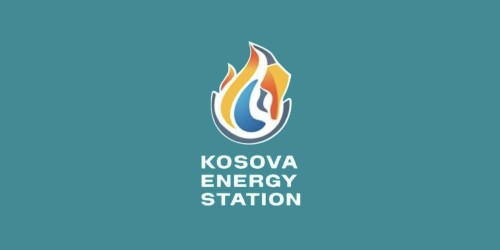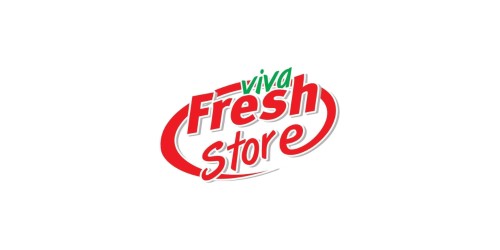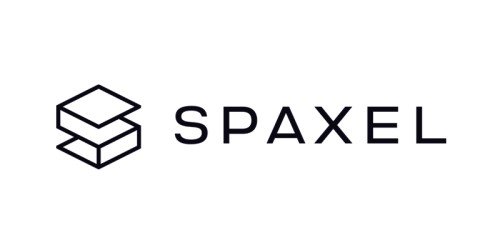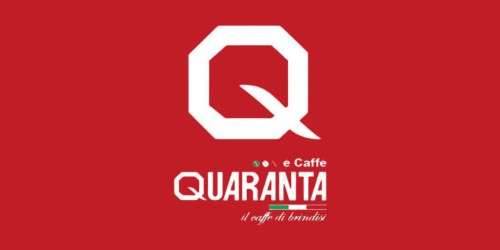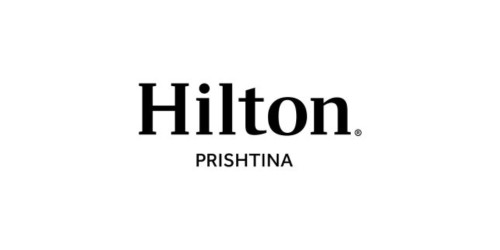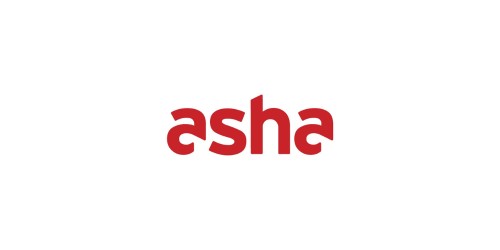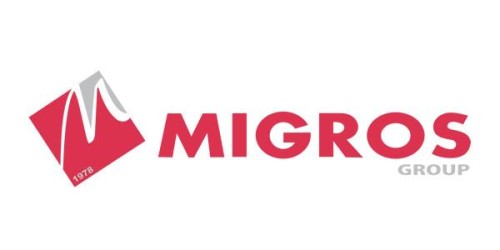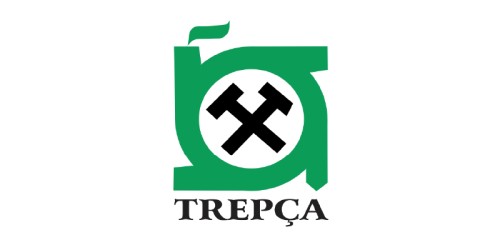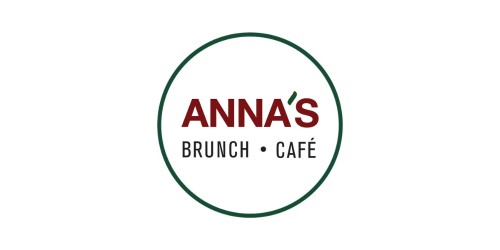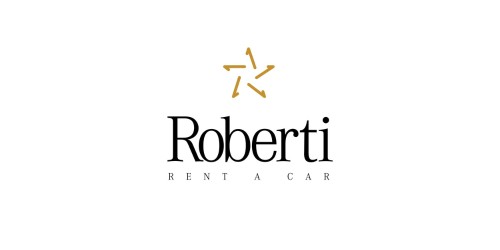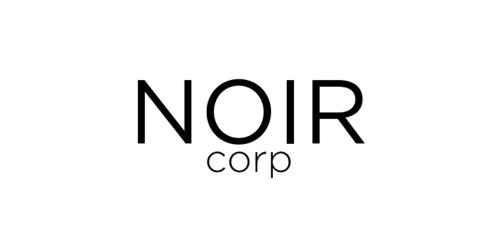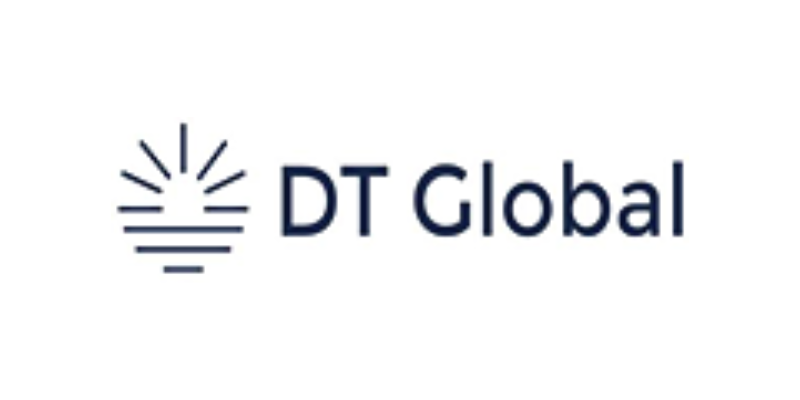
Request for Proposals (RFP)
Solicitation No. RFP #P1019-OPS-PR-1023-012
Title: Improve Investment Readiness Through Knowledge Sharing and Capacity Building for Private Sector Enterprises in Kosovo
Issue date: May 21, 2024
Closing date: June 04, 2024
Closing Time: 17hrs (5 pm) Kosovo time
Issuers: USAID/Kosovo Compete Activity and
USAID/Kosovo Investment Promotion and Access to Finance Activity
DT Global, the implementer of USAID/Kosovo Compete Activity (hereinafter “Compete”) under USAID Contract No. 72016720C00001 and USAID/Kosovo Investment Promotion and Access to Finance (hereinafter “Investment/Finance”) Activity under USAID Contract No. 72016723C00001, both referred to as “Compete and Investment/Finance Activities” invites proposals for the ‘’Improve Investment Readiness through knowledge sharing and capacity building for Private Sector Enterprises in Kosovo’’ opportunity, as described in Attachment I, “IDIQ Statement of Work”
The period of performance is anticipated to be June 15, 2024, and ending May 31, 2025. DT Global anticipates the award of one Indefinite Delivery, Indefinite Quantity subcontract (IDIQ). IDIQs are “umbrella mechanisms” setting terms and conditions for subsequent, specific work. All work will be ordered through the subsequent Firm Fixed Price or Cost Reimbursable Task Orders (TOs).
This solicitation in no way obligates DT Global to award either an IDIQ subcontract or any TOs, nor does it commit DT Global to pay any costs incurred in preparation and submission of a proposal in response to the RFP. Furthermore, DT Global reserves the right to reject any and all offers if such action is in the best interest of DT Global.
Proposals should be submitted electronically via email to USAID/Kosovo Compete Activity’s Procurement Team at this email address: [email protected]. The solicitation number above must also be mentioned in the subject of the email.
Attachments:
- Attachment I Statement of Work
- Attachment II Instructions to Offerors
- Attachment III: Labor Categories and Fully Burdened Daily Rates (FBDRs)
- Attachment IV: Evaluation Criteria
- Attachment V: Reps and Certs
- Attachment VI: Prime Contract Flow-Down Clauses
Attachment I
IDIQ STATEMENT OF WORK
- Background of projects
USAID Compete Activity
DT Global has been awarded the 5-year USAID Kosovo Compete Activity, lasting from August 2020 until August 2025, which aims to improve export competitiveness of key sectors in Kosovo. The project focuses its work on the export-oriented sectors of wood processing, information and communications technologies, and food processing. Starting in 2022, USAID Compete expanded its wood sector support to the subsector on modular homes/prefabricated buildings. USAID Compete focuses its work to improve export competitiveness in five functional areas, which include market access, diversified finance, business sophistication, skills development, and business environment.
USAID Investment Promotion and Access to Finance Activity
DT Global was also recently awarded the 5-year USAID Kosovo funded Investment Promotion and Access to Finance Activity in Kosovo. This project aims to strengthen the private sector’s capacity to deliver sustainable economic growth through two mutually re-enforcing objectives: 1) investment promotion and attraction; and 2) increased access and utilization of diversified finance. By achieving these two objectives, the Activity seeks to strengthen the resiliency of the private sector, create productive jobs, increase exports, and enable firms to adopt new technologies and business practices.
2. Intended Activity
In recent years, Kosovo’s private sector has gained steam with an increasing ability to penetrate export markets. With a considerable increase in the volume of exports, the structure of such exports has also been gradually shifting toward higher value-added products and services. A significant reason for Kosovo’s improved export performance is the longstanding support provided on private sector development by the United States Agency for International Development (USAID).
However, while exports have been growing, local exporters and businesses have also contended with limited supply capacities to serve export markets. Such limited capacities are due to several factors, one of which is limited access to tailored finance to enable the growth of local businesses. An important limitation of the further growth of local companies has also been the lack of investment readiness. Financing tickets by local banks impose limits on the value of investment that can be funded. One option for local companies to grow further is to enter partnerships with outside investors or companies in the form of mergers and acquisitions (M&As), joint ventures (JVs), private equity (PE) investments, or other forms.
Despite servicing a growing list of clients in export markets, many Kosovo companies continue to have limited knowledge on issues that underpin their investment readiness. Many businesses have applied only to a limited extent modern corporate governance practices, are not properly structured, may not be audited by credible audit companies, and lack implementation of environmental, social and governance (ESG) standards. Moreover, many local companies do not know their real company value, while this poses significant challenges when discussing potential M&As or other forms of external investments with interested investors. Lack of compliance with noted issues acts as a drag on their company valuation. When confronted with business growth opportunities, companies may also lack cooperation mechanisms in project ideation and implementation with other stakeholders, thereby hindering their further growth.
The overall objective of this assignment is to improve knowledge and awareness of the private sector on investment readiness in Kosovo, followed by the potential implementation of an in-company investment readiness program tailored to companies committed to significant transformative initiatives.
Specifically, the Scope of Work (SoW) intends to:
- provide direct support to the selected SMEs (enrolling in the program) to transform internally and enhance their operational and financial ability to be able to attract external investments into their companies in various forms mentioned above.
- Support the development of a common practice and procedure to increase the number of viable SMEs adopting the program and enhancing their up-scaling prospects and advancing into new development phases, especially in the exporting/foreign markets.
- Prompt other viable SMEs adopt similar practices and procedures enabling them to access other sources of funding and expand their operations into larger regional or foreign markets.
- Enhance the provision of business advisory services offered by local stakeholders in this domain, ensuring sustainability and alignment with the local context, strengthening the support infrastructure available to SMEs in Kosovo.
This SoW is intended to provide a general framework for the engagement of a capable service provider who will develop an investment readiness program for the private sector in Kosovo. Specific task orders will be agreed between Compete and Investment/Finance Activities and the selected service provider(s), in close consultation with the private sector enterprises.
3. Intended Tasks Orders for the Subcontractor
This SoW provides a general framework consisting of illustrative task orders that are likely to be required from the selected service provider(s) to support the design and implementation of an investment readiness program for the private sector in Kosovo. The overall objective is to improve knowledge and awareness of the private sector on investment readiness in Kosovo, followed by the potential implementation of an in-company investment readiness program with select companies who are serious about transformative change.
Intended task orders are likely to include:
Illustrative Task 1: Develop and deliver an effective awareness raising program on investment readiness.
- Scope current knowledge among Kosovo’s private sector on investment readiness - To effectively enhance investment readiness among Kosovo's private sector, a comprehensive program should be developed and implemented. The first step would be to scope the current knowledge level of businesses in Kosovo regarding investment readiness. This can be done through surveys, interviews, and focus group discussions with a representative sample of companies across various sectors and sizes.
- Develop an effective awareness-raising and knowledge-building program on investment readiness - Based on the findings from the initial scoping, an awareness-raising and knowledge-building program should be designed. This program should aim to educate businesses on the key concepts, benefits, and processes related to investment readiness. The program should be delivered to a cross-section of selected businesses, ensuring concepts and tools are explained in a simple and effective manner. The program should be designed in such a way that it should include capacity building of the local stakeholders (e.g., local consulting companies, sector associations, chambers of commerce and business associations, etc.). The content should cover topics such as: a) Understanding the investment landscape and different types of investors, b) Preparing a compelling business plan and financial projections, c) Developing a strong pitch deck and presentation skills d) Managing due diligence processes and legal considerations e) Negotiating terms and structuring deals f) Post-investment management and reporting.
- To ensure effective delivery of the program, a series of workshops and training sessions should be organized - These sessions should be interactive and engaging, utilizing case studies, group exercises, and real-world examples to help participants grasp the concepts and tools more easily. The training should be tailored to the needs and knowledge levels of different types of businesses, such as startups, SMEs, and larger corporations.
In addition to directly training businesses, it is crucial to build the capacity of local stakeholders who can continue to provide support and guidance on investment readiness. This includes local consulting companies, sector associations, chambers of commerce, and business associations. By training these stakeholders and equipping them with the necessary knowledge and tools, they can serve as ongoing resources for businesses seeking to enhance their investment readiness.
Illustrative Task 2: Deliver in-company investment readiness program.
- Scope interest among private sector enterprises and/or partners willing to participate in the program - The subcontractor will work closely with USAID Kosovo Compete and USAID Investment Promotion and Access to Finance Activity to identify and engage potential private sector partners for the in-company investment readiness program. Establish a clear and transparent process for evaluating and selecting private sector partners, in consultation with USAID Kosovo Compete and USAID Investment Promotion and Access to Finance Activity. The subcontractor will define a set of criteria that aligns with the goals of this activity and the priorities of both USAID Kosovo Compete and USAID Investment Promotion and Access to Finance Activity, ensuring that selected partners have the potential to benefit from and contribute to the program. Conduct joint reviews of applications and interviews with interested companies, leveraging the expertise and insights of USAID Kosovo Compete and USAID USAID Investment Promotion and Access to Finance Activity. Make final selection decisions in a collaborative manner, taking into account the input and recommendations of USAID Kosovo Compete and USAID Investment Promotion and Access to Finance Activity. Propose draft memorandums of understanding (MOUs) or other agreements such as responsibility matrices that outline the roles, tasks, and expectations of all parties involved.
- Select and conduct gap assessments for interested enrolling companies. - Select a cohort of companies based on the predefined criteria, ensuring a diverse representation of sectors and growth stages. Conduct a comprehensive gap assessment for each enrolled company, covering areas such as business strategy, financial management, organizational structure, legal compliance, and technology readiness.
- Develop specific individual action plans tailored based on the gap assessment of each engaged company - Analyze the findings of the gap assessment for each company to identify the key areas for improvement. Work closely with the management team of each company to develop a customized action plan that addresses their specific needs and goals. Break down the action plan into specific, measurable, achievable, relevant, and time-bound objectives and milestones. Assign responsibilities and resources for each action item, ensuring buy-in and commitment from the company's leadership.
- Design interventions to improve investment readiness. Develop a range of interventions and support mechanisms tailored to the needs of the enrolled companies. - Provide one-on-one mentoring and coaching sessions with experienced advisors and industry experts. Facilitate access to relevant resources, tools, and networks that can support the companies' investment readiness journey.
- Ensure the implementation of the commitments under the action plans for each enrolled company, leading to effective company investment readiness. - Assign a dedicated expert to each enrolled company who will be responsible for overseeing the implementation of their customized action plan. Establish clear lines of communication and reporting between the assigned expert, the company's leadership team, and other relevant stakeholders. Utilize the developed project plan for each company, breaking down the action plan into specific tasks, timelines, and deliverables. Conduct regular progress review meetings with the company's management team to assess the status of each action item and identify any potential roadblocks or challenges. Provide ongoing guidance, support, and resources to help the company's team members execute their assigned tasks effectively and efficiently. Offer targeted coaching and mentoring sessions to address specific skill gaps or knowledge deficits within the company's team, ensuring they have the necessary capabilities to implement the action plan. Facilitate access to external technical experts, advisors, and service providers who can provide specialized support in technical areas such as legal, financial, or technology matters.
- Elaborate key performance indicators (KPIs) for measuring and reflecting change. - Monitor the company's progress against the defined key performance indicators (KPIs) and milestones, using data-driven insights to track their investment readiness journey during the whole assignment. Propose assessment KPIs to measure the effectiveness of the interventions and support mechanisms provided, making data-driven adjustments and improvements as needed.
NOTE: For all tasks above, the service provider shall identify key stakeholders and describe the plan for involving them in the project, including feedback and consultation. The service provider will also be required to engage local experts to build local capacity in similar service provision.
4. Implementation and Execution
The Activity, in close coordination with private sector beneficiaries, will define specific task orders to be issued under the agreed contract.
The bidder/service provider must coordinate and collaborate with appointed staff of the USAID Compete and Investment Promotion and Access to Finance projects and private sector beneficiaries to ensure proper development and smooth implementation of deliverables. Regular progress reports and presentations outlining the design process and updates must be provided to the projects by the service provider.
5. Firm Qualifications
The bidder/service provider’s qualifications include:
- The service provider should be an entity with strong relevant experience in investment advisory, mergers and acquisitions, and investment readiness support to private sector companies.
- The service provider should have strong experience in scoping the needs of businesses and providing training to them.
- The service provider should have strong experience delivering in-company change.
- The service provider should have a strong track-record of improving organizational performance, leading to external investments in supported companies.
- The service provider should field a strong, hands-on, practically oriented team with strong interpersonal skills by involving also local experts to build expertise and capacity in this area.
- The work should be undertaken by a team consisting of experts (international/regional/local) who have the required and demonstrable skills and credentials to execute the deliverables and planned activities.
- Bidders may associate with other firms/individual consultants in the form of a consortium to enhance their qualifications to deliver the required deliverables to the highest standards.
- Previous exposure and experience in similar work in countries of the Western Balkans is considered an asset.
The selected company is obliged to appoint a Project Manager (PM). The PM, in close cooperation with the responsible persons at both projects, will be responsible for coordinating and delivering the planned and agreed activities. The PM will be responsible for the overall management of this contract, including team mobilization, management and support, coordination between parties involved and will act as the main point of contact for communications and reporting. The PM will ensure that all resources required are available for the high-quality production of the contracted services/products and activities.
6. Supervision and Reporting
The service provider will be supervised by the Compete and Investment/Finance Activities. The service provider will be required to provide activity progress reporting, as needed, and as instructed by both projects. The expected implementation timeframe is June 2024 – May 2025.
Attachment II
INSTRUCTIONS TO OFFERORS
General Instructions
These Instructions to Offerors will not form part of the offer or of the Subcontract. They are intended solely to aid Offerors in the preparation of their proposals.
- No costs incurred by the Offerors in preparing and submitting the proposal are reimbursable by DT Global.
- All cost figures must be presented in USD. All prices should be net of Host Country VAT and customs duties. The services provided under this contract are funded by the U.S. Government and shall be exempt from Host Country taxes, import and other fees, as stipulated in the bilateral agreement between the U.S. Government and Government of Kosovo.
- NDAA Section 889 Compliance. Section 889 of John S. McCain National Defense Authorization Act for Fiscal Year 2019 (NDAA) prohibits the U.S. Government and its contractors from (1) procuring or \\obtaining any equipment, system, or services that uses covered telecommunications equipment or services and (2) enter into a contract (or extend or renew a contract) with an entity that uses any equipment, system, or service that uses covered telecommunications equipment or services. A full discussion of the prohibitions can be found at FAR 52.204-25. To be eligible for award the offeror must comply with NDAA Section 889 Compliance. The offeror must complete and sign the representation in Attachment V. A full discussion of the prohibitions can be found at FAR 52.204-25.
- In addition to the above and to comply with the Kosovar local laws, Offerors must be licensed and authorized to conduct business in Kosovar.
Submission of Proposal:
- Proposals must be submitted in an electronic format as an email attachment, sent to the email address specified in the cover letter.
- The email should state the solicitation number in the subject line.
Content of Proposal:
The proposal shall consist of two sections 1) proposal; and 2) the required attachments.
- The Proposal
Cover Page:
The cover page must contain the following information:
- Solicitation Number
- Company’s Name
- Company’s Address
- Name of Company’s authorized representative
- Telephone No, Cellular Phone #, Email address
- Validity of Proposal
- Acceptance of Tax Withholding Statement
- Unique Entity Identifier (UEI) (if available) and TIN
- Name and address of Government Audit Agency and name and phone number of the auditor
- Signature, Date and time
Technical proposal:
- Description of the proposed activities.
- Brief outlining of the proposed methodology.
- Firm capacities in delivering the assignment.
Labor Categories Price Schedule and Descriptions:
An Indefinite Delivery Indefinite Quantity Subcontract is an umbrella mechanism that establishes unit prices for specific categories of services (Labor Categories) that will be procured on a recurring basis over a fixed period of time. Individual Task Orders are issued against the IDIQ for specific quantities and combination of various agreed-upon Labor Categories as needed. An IDIQ does not commit or guarantee that the project will spend any amount under the agreement. It is a simplified method of filling anticipated repetitive needs from qualified sources.
In the proposal, the offeror must propose labor categories of illustrative roles needed to accomplish the scope of work. The offeror is encouraged to provide rates of all personnel that could be required to implement the scope of work. This includes local and international experts of varying levels of seniority (junior, mid-level, and senior).
Offerors must include Fully Burdened Daily Rates (FBDRs) for each of the Labor Category proposed. Each Labor Category rate listed in the Table is “loaded” or “burdened” and includes the salary (inclusive of allowances) or consulting fee of the individual providing the services, any indirect costs applicable to labor (such as overhead, fringe benefits, and general & administrative costs), and profit or fee, if any. No separate indirect cost or fee will be recompensed as part of this subcontract.
The offeror must provide descriptions with minimum qualifications for each labor category.
Offeror is encouraged to provide this information using the templates provided in Attachment II.
- Required attachments.
- Current copy of the business registration (front and back)
- Completed and signed NDAA Representation Form (see Annex V)
ATTACHMENT III
Labor Categories and Fully Burdened Daily Rates (FBDRs)
Offerors will indicate FBDRs for each of the Labor Categories proposed. The offeror is encouraged to consider and include labor categories for all personnel required to perform the scope of work, including local and international experts of all levels of seniority.
Labor Category Price Schedule
| Labor Category | 2024 | 2025 |
| Project Manager | $USD FBDR | |
| Investment Advisors Team (international | ||
| Investment Advisors Team (regional) | ||
| Investment Advisors Team (local) | ||
Position Descriptions and Minimum Required Experience and Qualifications
Offeror is required to provide bulleted descriptions and minimum qualifications for each category provided.
Team Composition | |
Description | Minimum Experience and Qualifications |
| 15 years in Investment Advisory or Mergers of Acquisitions |
| 10 years in Investment Advisory or Mergers of Acquisitions |
| 5 years in Investment Advisory or Mergers of Acquisitions |
| 3 years in Advisory/Consulting to Manufacturing/Servicing Enterprises |
ATTACHEMENT IV
TECHNICAL PROPOSAL EVALUATION
The review of the proposal shall include the following criteria:
- Relevance of the proposed approach.
- Quality of technical team fielded.
- Number and relevance of prior references of similar projects implemented.
COST PROPOSAL EVALUATION
The review of the proposal shall include cost realism. This process will include a review of the price of the labor categories to confirm to determine if the overall costs proposed are reasonable and realistic for the work to be performed, if the cost reflects that the Offeror understands the requirements, and if the costs are consistent.
Evaluation of cost proposals will consider, but not be limited to, the following:
- Cost realism and completeness of cost proposal and supporting documentation.
- Overall cost control evidenced in the proposal such as avoidance of excessive salaries, excessive cost of management oversight and other costs more than reasonable requirements.
- FAR 4.21 PROHIBITION ON CONTRACTING FOR CERTAIN COVERED TELECOMMUNICATIONS AND VIDEO SURVEILLANCE SERVICES OR EQUIPMENT (SECTION 889) (DECEMBER 2021)
- FAR 4.21 PROHIBITION ON CONTRACTING FOR CERTAIN COVERED TELECOMMUNICATIONS AND VIDEO SURVEILLANCE SERVICES OR EQUIPMENT (SECTION 889) (DECEMBER 2021)
ATTACHMENT V
REPRESENTATION REGARDING CERTAIN TELECOMMUNICATIONS AND VIDEO SURVEILLANCE SERVICES OR EQUIPMENT
(a) Prohibitions.
Section 889(a) of the John S. McCain National Defense Authorization Act (NDAA) for Fiscal Year 2019 (Pub. L. 115-232) prohibits the U.S. Government and any of its contractors and subcontractors from procuring or obtaining, or extending or renewing a contract to procure or obtain, any equipment, system, or service that uses covered telecommunications equipment or services as a substantial or essential component of any system, or as critical technology as part of any system.
(b) Definitions:
Covered foreign country means The People’s Republic of China.
Covered telecommunications equipment or services means telecommunications equipment produced by Huawei Technologies Company, ZTE Corporation, Hytera Communications Corporation, Hangzhou Hikvision Digital Technology Company, or Dahua Technology Company (or any subsidiary or affiliate of such entities)
Critical technology means defense articles or defense services included on the United States Munitions List set forth in the International Traffic in Arms Regulations under subchapter M of chapter I of title 22, Code of Federal Regulations; Items included on the Commerce Control List set forth in Supplement No. 1 to part 774 of the Export Administration Regulations under subchapter C of chapter VII of title 15, Code of Federal Regulations, and controlled- (i) Pursuant to multilateral regimes, including for reasons relating to national security, chemical and biological weapons proliferation, nuclear nonproliferation, or missile technology; or (ii) For reasons relating to regional stability or surreptitious listening; Specially designed and prepared nuclear equipment, parts and components, materials, software, and technology covered by part 810 of title 10, Code of Federal Regulations (relating to assistance to foreign atomic energy activities); Nuclear facilities, equipment, and material covered by part 110 of title 10, Code of Federal Regulations (relating to export and import of nuclear equipment and material); Select agents and toxins covered by part 331 of title 7, Code of Federal Regulations, part 121 of title 9 of such Code, or part 73 of title 42 of such Code; or Emerging and foundational technologies controlled pursuant to section 1758 of the Export Control Reform Act of 2018 (50 U.S.C. 4817).
Reasonable inquiry means an inquiry designed to uncover any information in the entity's possession about the identity of the producer or provider of covered telecommunications equipment or services used by the entity that excludes the need to include an internal or third-party audit.
Substantial or essential component means any component necessary for the proper function or performance of a piece of equipment, system, or service.
(c) Representation. After conducting a reasonable inquiry Subcontractor represents that it [ ] will or [ ] will not provide covered telecommunications equipment or services to DT Global in the performance of any contract, subcontract, order, or other contractual instrument resulting from this contract. This representation shall be provided as part of the proposal and resubmitted on an annual basis from the date of award.
(d) Disclosures. If the Subcontractor has responded affirmatively to the representation in paragraph (c) of this clause, the Subcontractor shall provide the following additional information to DT Global:
(1) List of all covered telecommunications equipment and services offered or provided (Entity name, brand; model number, such as original equipment manufacturer (OEM) number, manufacturer part number, or wholesaler number; and item description, as applicable);
(2) Explanation of the proposed use of covered telecommunications equipment and services and any factors relevant to determining if such use would be permissible under the prohibition in paragraph (b) of this provision;
(e) Reporting requirement.
(1) In the event the Subcontractor identifies covered telecommunications equipment or services used as a substantial or essential component of any system, or as critical technology as part of any system, during contract performance, or the Subcontractor is notified of such by a subcontractor at any tier or by any other source, the Subcontractor shall report the information in paragraph (d)(2) of this clause to DT Global.
(2) The Subcontractor shall report the following information pursuant to paragraph (d)(1) of this clause
(i) Immediately upon such identification or notification: the contract number; the order number(s), if applicable; supplier name; supplier unique entity identifier (if known); supplier Commercial and Government Entity (CAGE) code (if known); brand; model number (original equipment manufacturer number, manufacturer part number, or wholesaler number); item description; and any readily available information about mitigation actions undertaken or recommended.
(ii) Within 5 business days of submitting the information in paragraph (d)(2)(i) of this clause: any further available information about mitigation actions undertaken or recommended. In addition, the Subcontractor shall describe the efforts it undertook to prevent use or submission of covered telecommunications equipment or services, and any additional efforts that will be incorporated to prevent future use or submission of covered telecommunications equipment or services.
(f) 2nd Tier Subcontracts. The Subcontractor shall insert the substance of this clause, including this paragraph (f), in all 2nd Tier subcontracts and other contractual instruments, including subcontracts for the acquisition of commercial items.
(g) SAM Verification. The Subcontractor shall regularly review the list of excluded parties in the System for Award Management (SAM) (https://www.sam.gov) to identify entities excluded from receiving federal awards for “covered telecommunications equipment or services”.
Contract/Subcontract No.: _________________
Signature: _____________________________
Date: _________________________________
Name: ________________________________
Title/Position: __________________________
Organization: ___________________________
ATTACHMENT VI
Prime Contract Flow-Down Clauses
This Contract will be funded by the U.S. Agency for International Development (USAID) with DT Global implementing this USAID project. Applicable clauses incorporated herein by reference shall have the same force and effect as if they were incorporated in full text. A copy of the full text of each clause may be obtained from http://www.acquisition.gov/far, http://www.usaid.gov/policy/ads/300/aidar.pdf, or from DT Global ’s procurement official. The term "FAR" means Federal Acquisition Regulation. The terms, "Contractor," "Government" and "Contracting Officer" as used in these clauses shall refer to Vendor, DT Global, and DT Global Contract Administrator respectively. In no event shall any provision of this contract or Orders issued against it be construed as allowing the Vendor to appeal directly to or otherwise communicate directly with (USAID) without written consent of DT Global.
FEDERAL ACQUISITION REGULATION (48 CFR Chapter 1)
| Clause No: | Clause Title and Date |
| 52.202-1 | Definitions. (JUN 2020) |
| 52.242-15 | STOP-WORK ORDER (AUG 1989) |
| 52.242-15 | STOP-WORK ORDER (AUG 1989) - ALTERNATE (APR 1984) |
| 752.245-71 | TITLE TO AND CARE TO PROPERTY (APR 1984) |
| 752.7003 | DOCUMENTATION FOR PAYMENT (NOV 1998) |
| 52.203-3 | Gratuities. (APR 1984) |
| 52.203-5 | Covenant Against Contingent Fees. (MAY 2014) |
| 52.203-6 | Restrictions on Subcontractor Sales to the Government. (JUN 2020) |
| 52.203-7 | Anti-Kickback Procedures. (JUN 2020) |
52.203-8 | Cancellation, Rescission, andRecovery of Fundsfor Illegal or Improper Activity. (MAY 2014) |
| 52.203-10 | Price or Fee Adjustment for Illegal or Improper Activity. (MAY 2014) |
52.203-12 | Limitation on Payments to Influence CertainFederal Transactions. (JUN 2020) |
| 52.203-13 | Contractor Code of Business Ethics and Conduct. (NOV 2021) |
| 52.203-14 | Display of Hotline Poster(s). (NOV 2021) |
| 52.203-16 | Preventing Personal Conflicts of Interest. (JUN 2020) |
52.203-17 | Contractor Employee Whistleblower Rights and Requirement to Inform Employees of Whistleblower Rights. (JUN 2020) |
52.204-4 | Printed or CopiedDouble-Sided on Postconsumer Fiber Content Paper. (MAY 2011) |
52.204-10 | Reporting Executive Compensation and First-Tier Subcontract Awards. (JUN 2020) |
| 52.204-13 | System for AwardManagement Maintenance. (OCT 2018) |
| 52.204-14 | Service Contract Reporting Requirements. (OCT 2016) |
52.204-19 | Incorporation by Reference of Representations and Certifications (DEC 2014) |
52.204-23 | Prohibition on Contracting for Hardware, Software, and Services Developed or Provided by Kaspersky Laband Other Covered Entities (Nov 2021) |
52.204-24 | Representation Regarding Certain Telecommunications and Video Surveillance Services or Equipment (Nov 2021) |
52.204-25 | Prohibition on Contracting for Certain Telecommunications and Video Surveillance Services or Equipment (Nov 2021) |
52.204-26 | Covered Telecommunications Equipment or Services-Representation (Oct 2020) |
52.209-6 | Protecting the Government's Interest When Subcontracting with Contractors Debarred, Suspended, or Proposed for Debarment. (NOV 2021) |
52.209-9 | Updates of Publicly Available Information Regarding Responsibility Matters. (OCT 2018) |
52.209-10 | Prohibition on Contracting with Inverted Domestic Corporations. (NOV 2015) |
| 52.210-1 | Market Research. (NOV 2021) |
| 52.215-2 | Audit and Records -- Negotiation (JUN 2020) |
| 52.215-8 | Order of Precedence - Uniform Contract Format. (OCT 1997) |
| 52.215-19 | Notification of Ownership Changes (OCT 1997) |
| 52.215-23 | Limitations on Pass-Through Charges. (JUN 2020)-Alternate I (OCT 2009) |
| 52.216-7 | Allowable Cost and Payment. (AUG 2018) |
| 52.216-8 | Fixed Fee. (JUN 2011) |
| 52.216-24 | Limitation of Government Liability. (APR 1984) |
| 52.216-25 | Contract Definitization. (OCT 2010) |
| 52.219-8 | Utilization of Small Business Concerns (OCT 2022) |
| 52.219-9 | Small business subcontracting plan. (OCT 2022) |
| 52.219-16 | Liquidated Damages - Subcontracting Plan. (SEP 2021) |
| 52.222-21 | Prohibition of segregated facilities. (APR 2015) |
| 52.222-26 | Equal Opportunity. (SEP2016) |
| 52.222-29 | Notification of visa denial. (APR 2015) |
| 52.222-50 | Combating Trafficking in Persons (NOV2021) |
| 52.223-6 | Drug-Free Workplace. (MAY 2001) |
52.223-18 | Encouraging Contractor Policies to Ban TextMessaging while driving (JUN 2020) |
| 52.225-13 | Restrictions on Certain Foreign Purchases. (FEB 2021) |
| 52.227-14 | Rights In Data – General(MAY 2014) |
| 52.228-3 | Workers' Compensation Insurance (Defense Base Act).(JUL 2014) |
| 52.228-7 | Insurance - Liability toThird Persons. (MAR 1996) |
| 52.230-2 | Cost Accounting Standards. (JUN 2020) |
| 52.230-6 | Administration of Cost Accounting Standards. (JUN 2010) |
| 52.232-9 | Limitation on Withholding of Payments. (APR1984) |
| 52.232-17 | Interest. (MAY 2014) |
| 52.232-18 | Availability of Funds.(APR 1984) |
| 52.232-22 | Limitation of Funds. (APR 1984) |
| 52.232-23 | Assignment of Claims.(MAY 2014) |
| 52.232-25 | Prompt payment. (JAN 2017) |
52.232-33 | Payment by Electronic Funds Transfer - System for Award Management. (OCT 2018) |
| 52.232-39 | Unenforceability of Unauthorized Obligations. (JUN 2013) |
| 52.233-1 | Disputes(MAY 2014) |
| 52.233-3 | Protest after Award.(AUG 1996) - Alternate I (JUN 1985) |
| 52.233-4 | Applicable Law for Breach of Contract Claim. (OCT 2004) |
| 52.242-1 | Notice of Intent to Disallow Costs. (APR 1984) |
| 52.242-3 | Penalties for Unallowable Costs. (DEC 2022) |
| 52.242-4 | Certification of Final Indirect Costs. (JAN 1997) |
| 52.242-5 | Payments to Small Business Subcontractors. (JAN 2017) |
| 52.242-13 | Bankruptcy. (JUL 1995) |
| 52.243-2 | Changes - Cost-Reimbursement. (AUG 1987) - Alternate II (APR 1984) |
| 52.243-7 | Notification of Changes. (JAN 2017) |
| 52.244-2 | Subcontracts. (JUN 2020) |
| 52.244-5 | Competition in Subcontracting. (DEC 1996) |
| 52.244-6 | Subcontracts for Commercial Items. (DEC 2022) |
| 52.245-1 | Government Property (SEP2021) |
| 52.245-9 | Use and Charges. (APR 2012) |
| 52.246-25 | Limitation of Liability - Services. (FEB 1997) |
| 52.247-63 | Preference for U.S.-FlagAir Carriers. (JUN 2003) |
| 52.249-6 | Termination (Cost-Reimbursement). (MAY 2004) |
| 52.249-14 | Excusable Delays. (APR 1984) |
| 52.253-1 | Computer Generated Forms. (JAN 1991) |
AIDAR (48 CFR Chapter 1)
| Clause Number: | Clause Title and Date |
| 752.202-01 | Definitions (JAN 1990) |
| 752.204-2 | Security Requirements. (FEB 1999) |
| 752.209-71 | Organizational Conflict of Interest Discovered After Award (JUN1993) |
| 752.211-70 | Language and Measurement (JUN 1992) |
752.219-8 | Utilization of smallbusiness concerns andsmall disadvantaged business concerns. (MAR 2015) |
| 752.219-71 | Mentor Requirements and Evaluation (JUL 2007) |
| 752.222-70 | USAID Disability Policy.(DEC 2004) |
| 752.222-71 | Nondiscrimination. (JUN 2012) |
752.225-9 | Buy America Act- Trade Agreements Act- Balance of Payments Program. |
| 752.225-70 | Source and nationality requirements. (FEB 2012) |
| 752.228-3 | Worker’s Compensation Insurance (Defense Base Act).(DEC 1991) |
| 752.228-7 | Insurance-Liability toThird Persons (JUL 1997) |
| 752.228-9 | Cargo insurance. (DEC1998) |
| 752.228-70 | Medical Evacuation (MEDEVAC) Services (JUL 2007) |
| 752.229-70 | Federal, state and local taxes |
| 752.231-71 | Salary supplements for Host Government employees. (MAR 2015) |
| 752.232-70 | Letter of Credit Advance Payment. (MAR 2015) |
| 752.242-70 | Periodic Progress Reports (OCT 2007) |
| 752.245-70 | Government property - USAID reporting requirements. (JUL 1997) |
| 752.245-71 | Title To and Care of Property (APR1984) |
752.247-70 | Preference for privately owned U.S.-flag commercial vessels. (OCT 1996) |
| 752.252-1 | AIDAR solicitation provisions incorporated by reference (MAR 2015) |
| 752.7001 | Biographical Data (JUL1997) |
| 752.7002 | Travel and Transportation (JAN 1990) |
| 752.7003 | Documentation for payment. (NOV 1998) |
| 752.7004 | Emergency locator information (JUL 1997) |
| 752.7005 | Submission requirements for development experience documents (SEP 2013) |
| 752.7006 | Notices (APR 1984) |
| 752.7007 | Personnel Compensation (JUL 2007) |
| 752.7008 | Use of Government Facilities or Personnel (APR 1984) |
| 752.7009 | Marking (JAN 1993) |
| 752.7010 | Conversion of U.S. Dollars to Local Currency (APR 1984) |
| 752.7011 | Orientation and Language Training. (APR 1984) |
| 752.7012 | Protection of the Individual as a Research Subject. (AUG 1995) |
| 752.7013 | Contractor-Mission Relationships. (OCT 1989) |
| 752.7014 | Notice of Changes in Travel Regulations (JAN 1990) |
| 752.7015 | Use of Pouch Facilities. (JUL 1997) |
752.7018 | Health and Accident Coverage for USAID Participant Trainees (JAN 1999) |
| 752.7019 | Participant Training (JAN1999) |
| 752.7021 | Changes in Tuition and Fees. (APR1984) |
| 752.7022 | Conflicts Between Contract and Catalog. (APR 1984) |
| 752.7023 | Required Visa Form for USAID Participants (APR 1984) |
| 752.7024 | Withdrawal of Students. (APR 1984) |
| 752.7025 | Approvals (APR 1984) |
| 752.7027 | Personnel. (DEC 1990) |
| 752.7028 | Differential and Allowances (JUL 1996) |
| 752.7029 | Post Privileges. (JUL 1993) |
| 752.7030 | Inspection Trips by Contractor's Officers and Executives. (APR1984) |
| 752.7031 | Leave and holidays. (OCT1989) |
752.7032 | International Travel Approval and Notification Requirements (APR 2014) |
| 752.7033 | Physical fitness. (JUL1997) |
| 752.7034 | Acknowledgement and Disclaimer (DEC 1991) |
| 752.7035 | Public Notices (DEC 1991) |
752.7036 | USAID Implementing Partner Notices (IPN) portal for acquisition. (JUL 2014) |
| 752.7037 | Child safeguarding standards. (AUG 2016) |
752.7038 | Nondiscrimination against End-Users of Supplies or Services. (OCT 2016) |
CLAUSES INCORPORATED IN FULL TEXT
- The award of this contract and its period of performance is based on the Section 889 Modified Foreign Assistance (FA) Waiver USAID received from the Director of National Intelligence (DNI), which expires on September 30, 2028. The period of performance of this contract is limited by the terms of the Modified FA Waiver, including the Modified FA Waiver duration as set forth in Section F.
The Contractor must submit the representation at FAR 52.204-24 Covered Telecommunications Equipment tor Services-Representation no later than March 31, 2028. If there is a renewed or alternative waiver in place before that date, or if the Contractor represents that it does not use covered equipment and services, the CO will provide written notice of its intent to exercise the option.
- As soon as the Contractor is no longer using any covered equipment or services but no later than March 31, 2028, the Contractor must submit the representation at FAR 52.204-24 Covered Telecommunications Equipment or Services-Representation.
- FAR52.216-24 LIMITATION OF GOVERNMENT LIABILITY
(End of clause)
- In performing this contract, the Contractor is not authorized to make expenditures or incur obligations exceeding the obligated amount listed in section B.
- The maximum amount for which the Government shall be liable if this contract is terminated is the obligated amount, listed in Section B.
- FAR52.217-8 OPTION TO EXTEND SERVICES(NOV 1999)
(End of clause)
The Government may require continued performance of any services within the limits and at the rates specified in the contract. These rates may be adjusted only as a result of revisions to prevailing labor rates provided by the Secretary of Labor. The option provision may be exercised more than once, but the total extension of performance here under shall not exceed 6 months. The Contracting Officer may exercise the option by written notice to the Contractor within 60 days of the completion date of this contract.
(End of clause)
- FAR 52.229-8TAXES – FOREIGNCOST-REIMBURSEMENT CONTRACTS (MAR 1990)
- Any tax or duty from which the United States Government is exempt by agreement with the Government of Kosovo, or from which the Contractor or any subcontractor under this contract is exempt under the laws of Kosovo, must not constitute an allowable cost under this contract.
- If the Contractor or subcontractor under this contract obtains a foreign tax credit that reduces its Federal income tax liability under the United States Internal Revenue Code (Title 26, U.S. Code) because of the payment of any tax or duty that was reimbursed under this contract, the amount of the reduction must be paid or credited at the time of such offset to the Government of the United States as the Contracting Officer directs.
- FAR 52.247-67, SUBMISSION OF TRANSPORTATION DOCUMENTS FOR AUDIT (FEB 2006)
(End of clause)
- The Contractor shall submit to the address identified below, for prepayment audit, transportation documents on which the United States will assume freight charges that were paid—
- By the Contractor under a cost-reimbursement contract; and
- By a first-tier subcontractor under a cost reimbursement subcontract thereunder.
- Cost-reimbursement Contractors shall only submit for audit those bills of lading with freight shipment charges exceeding $100. Bills under $100 shall be retained on-site by the Contractor and made available for on-site audits. This exception only applies to freight shipment bills and is not intended to apply to bills and invoices for any other transportation services.
- Contractors shall submit the above referenced transportation documents to: Transportation Division Office of Acquisition and Assistance,
RRB 7.09-006 US Agency for International Development
Washington, DC 20523
(End of clause)
I.8. AIDAR 752.228-3 WORKERSCOMPENSATION INSURANCE (DEFENSEBASE ACT) (DBA) (DEC 1991) [(DEVIATION JUN 2022)] Class Deviation No.
M-OAA-DEV-AIDAR-22-10c
In addition to the requirements specified in (48 CFR) FAR 52.228-3,the Contractor agrees to the following:
- The Contractor agrees to procure Defense Base Act (DBA)insurance pursuant to the terms of the contract between USAID and USAID’s DBA insurance carrier unless the Contractor has a DBA self insurance program approved by the Department of Labor or has an approved retrospective rating agreement for DBA. The rates and contact information for USAID’s DBA insurance carrier are published in an Acquisition & Assistance Policy Directive found on USAID’s website: https://www.usaid.gov/work-usaid/resources-for-partners. Alternatively, the Contractor can request the rates and contact information from the Contracting Officer.
- If USAID or the Contractor has secured a waiver of DBA coverage (see (48 CFR) AIDAR 728.305-70(a)) for Contractor’s employees who are not citizens of, residents of, or hired in the United States, the Contractor agrees to provide such employees with worker’s compensation benefits as required by the laws of the country in which the employees are working, or by the laws of the employee’s native country, whichever offers greater benefits.
- The Contractor further agrees to insert in all subcontracts hereunder to which the DBA is applicable, a clause similar to this clause, including this sentence, imposing on all subcontractors a like requirement to provide overseas worker’s compensation insurance coverage and obtain DBA coverage under the USAID requirements contract.
EXECUTIVE ORDER ON TERRORISM FINANCING (AUG 2016)
The Subcontractor/Recipient is reminded that U.S. Executive Orders and U.S. law prohibits transactions with, and the provision of resources and support to, individuals and organizations associated with terrorism. It is the legal responsibility of the subcontractor/recipient to ensure compliance with these Executive Orders and laws. This provision must be included in all subcontracts/sub-awards issued under this subcontract/agreement.

-thumbnail.jpg)

